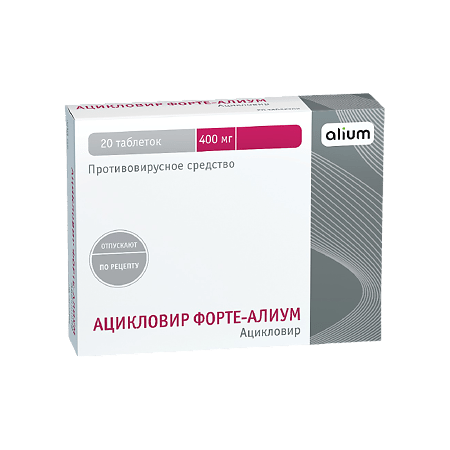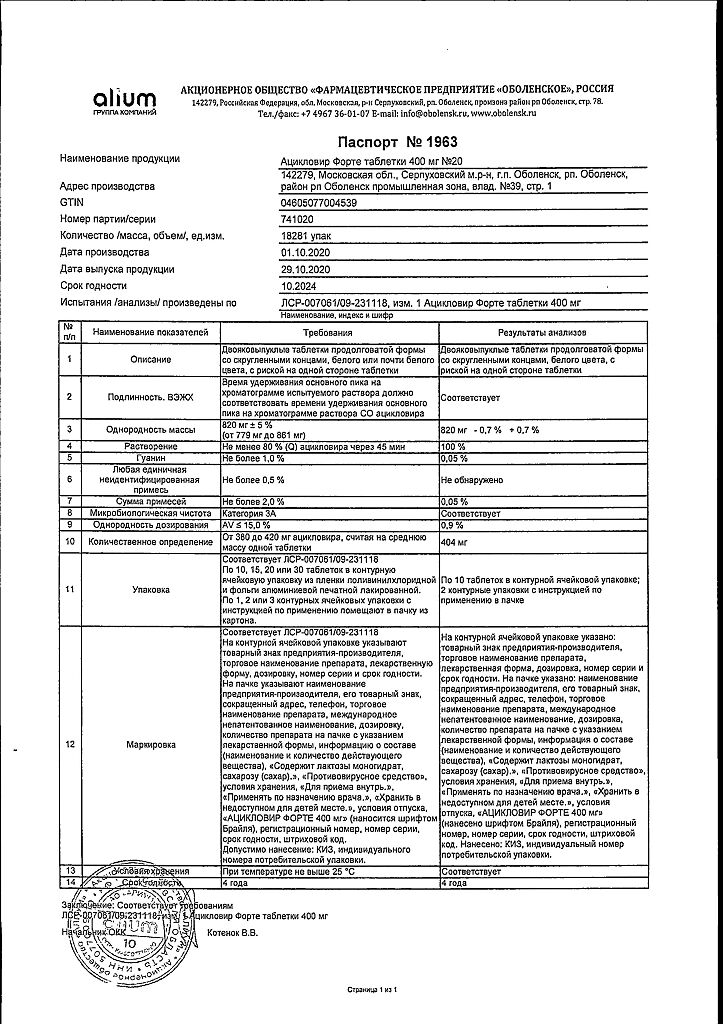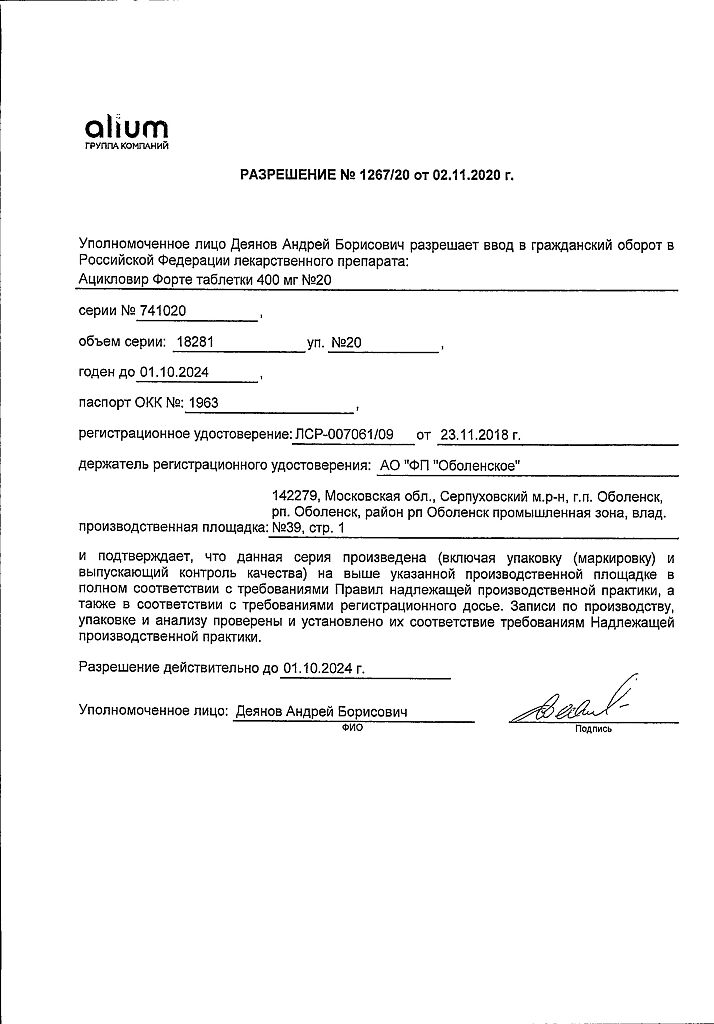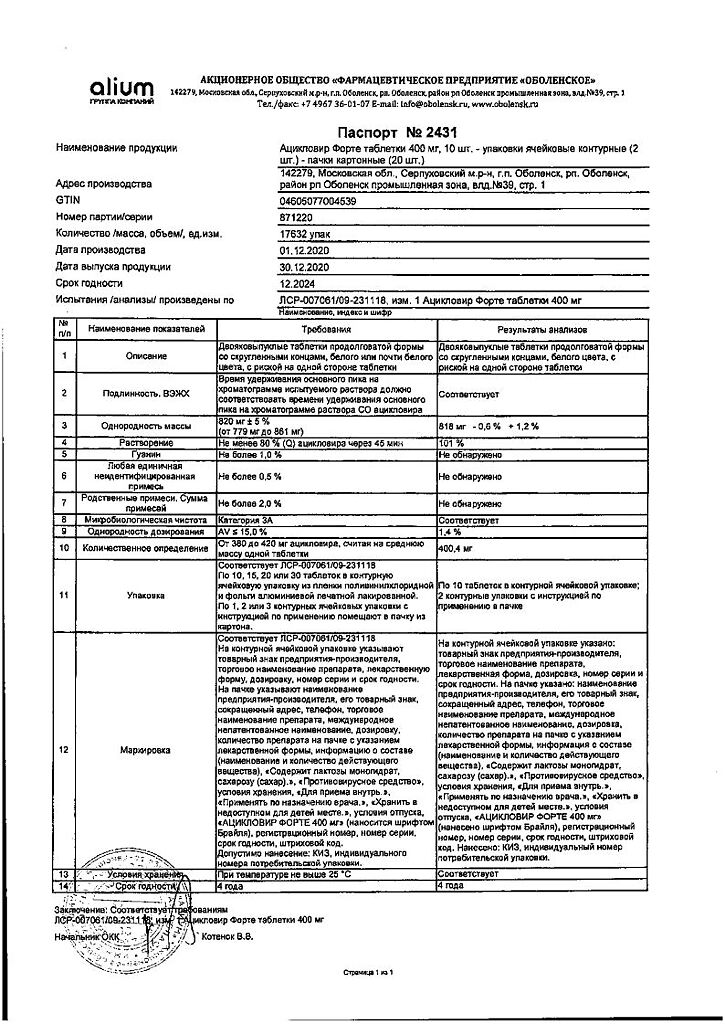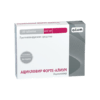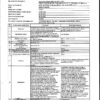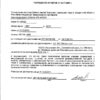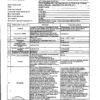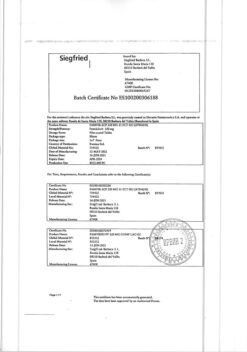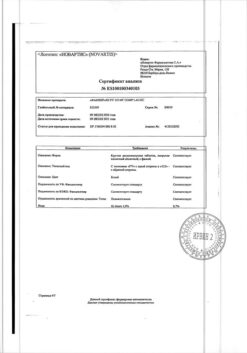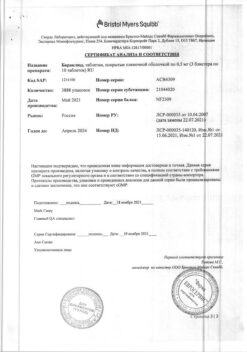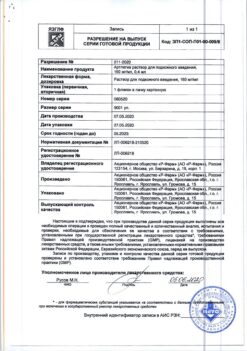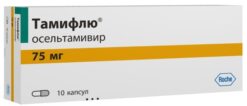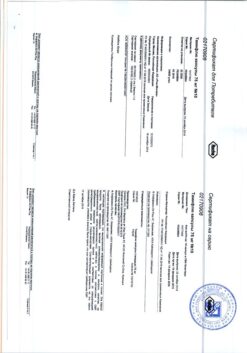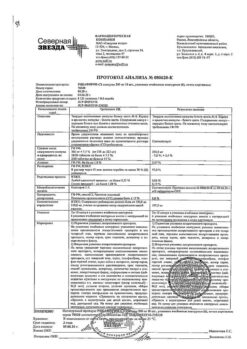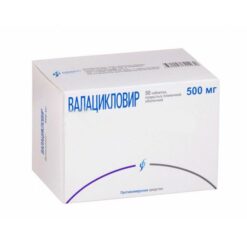No products in the cart.
Description
Antiviral drug, synthetic analog of acyclic purine nucleoside, which has a highly selective effect on herpes viruses. A series of sequential reactions of acyclovir transformation into mono-, di- and triphosphate acyclovir takes place inside the virus-infected cells under the action of viral thymidine kinase. Acyclovir triphosphate integrates into the chain of viral DNA and blocks its synthesis by competitive inhibition of viral DNA polymerase.
Indications
Indications
Treatment of infections of the skin and mucous membranes caused by Herpes simplex viruses type I and II, both primary and secondary, including genital herpes.
Prevention of exacerbations of recurrent infections caused by Herpes simplex viruses type I and II in patients with normal immune status.
Prevention of primary and recurrent infections caused by Herpes simplex viruses type I and II in patients with immunodeficiency.
As part of complex therapy for patients with severe immunodeficiency: with HIV infection (stage of AIDS, early clinical manifestations and detailed clinical picture) and in patients who have undergone bone marrow transplantation.
Treatment of primary and recurrent infections caused by the Varicella zoster virus (chickenpox, as well as herpes zoster).
Pharmacological effect
Pharmacological effect
An antiviral drug, a synthetic analogue of an acyclic purine nucleoside, which has a highly selective effect on herpes viruses. Inside virus-infected cells, under the influence of viral thymidine kinase, a series of sequential reactions of transformation of acyclovir into mono-, di- and triphosphate of acyclovir takes place. Acyclovir a triphosphate is integrated into the viral DNA chain and blocks its synthesis through competitive inhibition of viral DNA polymerase.
Special instructions
Special instructions
Use strictly as prescribed by a doctor to avoid complications in adults and children over 3 years of age.
Active ingredient
Active ingredient
Acyclovir
Composition
Composition
One tablet contains:
Pregnancy
Pregnancy
Acyclovir crosses the placental barrier and accumulates in breast milk.
Use during pregnancy is only possible if the expected benefit to the mother outweighs the potential risk to the fetus.
If it is necessary to take acyclovir during lactation, interruption of breastfeeding is required.
Contraindications
Contraindications
Hypersensitivity to acyclovir, ganciclovir or any excipient of the drug.
Taking the drug is contraindicated during lactation.
Children under 3 years of age (for this dosage form).
Galactose intolerance, lactase deficiency, glucose-galactose malabsorption.
With caution:
Pregnancy; elderly people and patients receiving large doses, especially due to dehydration; renal dysfunction; neurological disorders or neurological reactions to taking cytotoxic drugs (including in history).
Side Effects
Side Effects
The drug is usually well tolerated.
Interaction
Interaction
When used simultaneously with probenecid, the average half-life of acyclovir increases and the clearance of acyclovir decreases.
When taken simultaneously with nephrotoxic drugs, the risk of developing renal dysfunction increases.
Overdose
Overdose
Ingestion of 20 g of acyclovir has been reported. Symptoms: agitation, coma, convulsions, lethargy. Precipitation of acyclovir in the renal tubules is possible if its concentration exceeds the solubility in the renal tubules (2.5 mg/ml).
Overdose with parenteral administration (with bolus administration, or use in high doses, or in patients whose water and electrolyte balance is not properly controlled): increased urea nitrogen, hypercreatininemia, impaired renal function, lethargy, convulsions, coma.
Treatment: maintenance of vital functions, hemodialysis.
Storage conditions
Storage conditions
Store in a dry place, protected from light, out of reach of children, at a temperature not exceeding 25°C.
Shelf life
Shelf life
2 years.
Manufacturer
Manufacturer
Obolenskoye FP JSC, Russia
Additional information
| Shelf life | 2 years. |
|---|---|
| Conditions of storage | Store in a dry, protected from light, out of the reach of children, at a temperature not exceeding 25 ° C. |
| Manufacturer | Obolenskoe FP JSC, Russia |
| Medication form | pills |
| Brand | Obolenskoe FP JSC |
Related products
Buy Acyclovir forte, tablets 400 mg 20 pcs with delivery to USA, UK, Europe and over 120 other countries.

